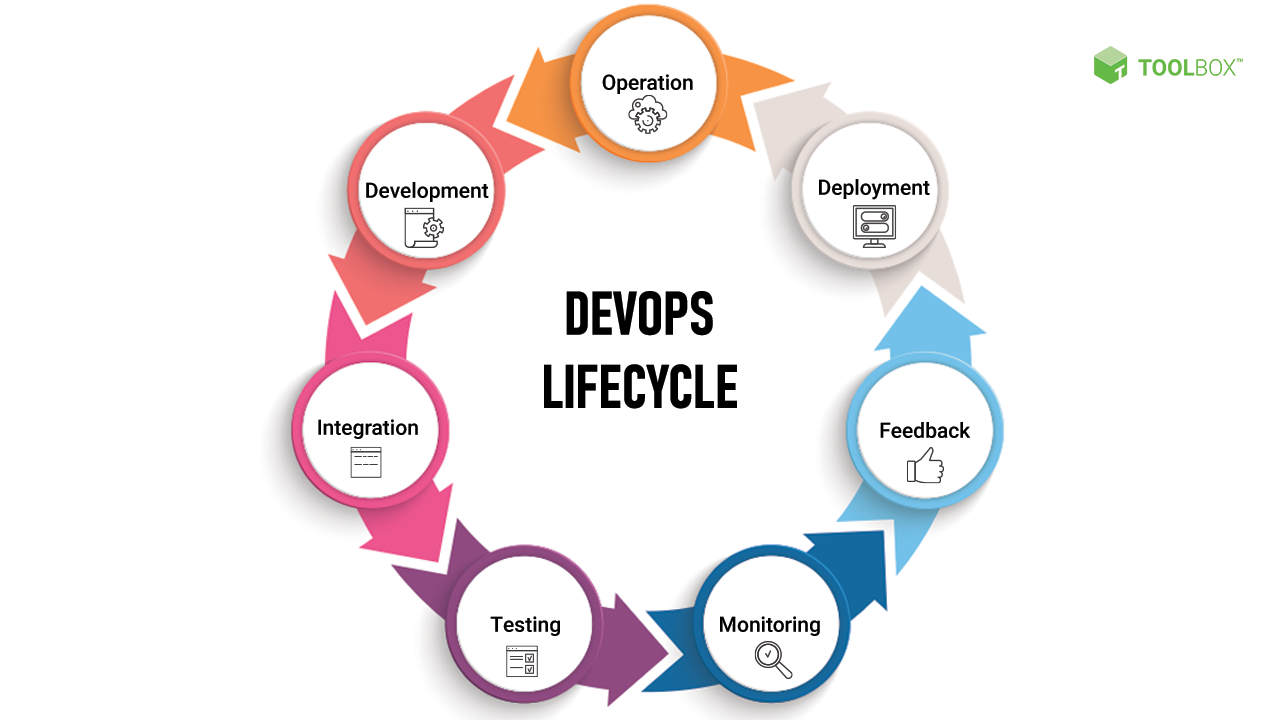Industry News
How to avoid network and server infrastructure issues during the development cycle

Mathieu Duperré, CEO, Edgegap
Regardless of whether you’re an indie developer or a AAA publisher, making games is never simple. Taking a game project from the initial concept to launch is a huge undertaking, especially when you begin incorporating multiplayer and social elements. Despite eye-watering budgets and huge teams of developers, countless games fall flat on release.
Thankfully, many of the common obstacles can be easily avoided and disruption to your release timeline kept to a minimum if you’re aware of the potential network and server infrastructure issues at key stages of development: the main development cycle, pre-launch, the launch period itself and once the game has launched.
Problems during the main development cycle
Some of the most common problems you’ll encounter on the tech side of the main development cycle can be the result of:
- Imperfect or hurried CI/CD pipelines. It can take days to push a new release for testing when you should be able to launch a few releases every day.
- Dev teams taking on too much in-house rather than seeking outside assistance (netcode, game engine, backend services).
- Trying to save funds through open-source projects that eventually become outdated, unsupported during your dev cycle or ends up in engineering money pits.
- Developers waiting until post-launch to focus on important elements such as crossplay.
- QA teams lacking constant access to the game build.
Any of these sound familiar? If so, it might be time to rethink your core strategy and whether you’re adhering to the DevOps methodology. Do you have a structured approach or are you lurching leftfield and drifting off course?
While developing your own netcode and game engine in-house can seem appealing, it’s important to consider the potential risks that might emerge further down the road. If problems with your netcode or a proprietary game engine present themselves at a particularly busy stage of development, you’ll wish you’d have outsourced them.
Considering where you can offload certain aspects of development to external partners can help reduce your team’s workload and improve their efficiency so they can focus on more pressing matters.
Mistakes to avoid just before the launch
One of the biggest mistakes you can make just before launch? Underestimating your CCU (concurrent users worldwide) and employing a low percentage buffer of around 10%. Misjudging your CCU is going to put too much strain on your servers and overall backend services and is one of the most common reasons players experience crashes around the launch. Similarly, don’t underestimate the number of regions you’ll need servers in too. A global game launch requires an equal distribution of worldwide servers to avoid latency issues.
When it comes to servers, it’s always best to plan ahead and scale back, rather than the other way around. Prioritise network partners who offer pay-as-you-go options for server access, so if you do need to scale back (or up) you can do so easily. This should always be the preferred option and will prevent you from being charged for servers you’re not using. It’s important to be aware of the risks associated with overestimating, as this can lead to studios signing long-term contracts and ultimately being overresourced.
Finally, one issue that can cause developers and studios a lot of trouble is data protection regulation laws. I’ve heard plenty of horror stories about studios turning a blind eye to privacy laws such as the General Data Protection Regulation (GDPR) and the California Consumer Privacy Act (CCPA). Make sure you’ve checked the specific rules regarding data collection in your region as early as possible to avoid a frantic rush of paperwork towards the end of development or, worse, incurring costly fines.
Obstacles on launch day
It can be easy to think that you’ve made it through the worst once you reach launch day, but this is usually the stage where major issues can suddenly appear. You may notice a bombardment of negative responses from Twitter, Steam and other platforms addressing critical issues with the game – make sure you address these rather than ignoring them. These responses can be important indicators of how the players are responding to your game and if you’ve factored their feedback in the development phase.
Once the game has launched, you will have the clearest indicator of how many servers you’ll need to support the players. This is where your planning will prove to be correct or wide of the mark if you’d reserved say 1000, but you only need 200.
A 24/7 support plan is an important consideration when the game is live, this will enable rapid fixes to negate as many disruptions as possible. A low-cost DDoS solution is also a crucial facet to bear in mind. A server orchestrator will help developers manage influx of traffic along with capturing crucial data that can be incorporated into the game as part of the observability phase.
Post-launch issues
Now that your game is in the world, there can be a strong temptation to introduce a plethora of new elements to the game to enhance the player experience. While on the face of it these are good ideas, new mods or minor updates can prove problematic and contain major bugs. Responding to these new issues can be distracting and take weeks or even months to solve.
On top of this, if you haven’t properly planned earlier in the process, major updates to your game servers could potentially lead to maintenance issues and significant downtime for your player base. If players have a bad experience on launch, they’ll likely just move on to the next best thing. When EA launched Battlefield 2042, server issues, loading times and game-breaking bugs plagued the game. Within months, player numbers dropped to fewer than 1,000 concurrent players on Steam.
Of course, there are a number of ways to circumvent these issues. It is crucial to choose a backend that can support multi-versioning A/B testing and facilitate rolling updates without outages. You’d be hard-pressed to find a gamer who enjoys an unplayable game. Automation can also help in the production pipeline, this includes deploying quick fix updates and upgrades which will reduce the human error factor.
Another consideration that is often overlooked is outsourcing for network and platform providers to remove a large in-house team dedicated to DevOps or Engineering. This is intensive work that will take up the time of staff, and outsourcing is a viable option and it makes perfect sense for smaller studios, especially to pursue this option purely from a cost-saving perspective.
Making edge count
Edge computing is often overlooked by game developers, but it can alleviate many of the issues described here, particularly around server provisioning and latency issues. Edge technology brings computation and data storage closer to the source of the data, placing it at the edge of the network where performance gain is most optimal. This reduces unnecessary travel and drastically speeds up the process resulting in close to a lag-free experience.
If you’re looking at cross-play for your game, infrastructure requirements become more complex. Edge computing helps to negate some of the most nagging delay issues that come with playing across different platforms. As cross-play becomes more of a consideration for developers, edge computing along with automation can come to be one of the solutions to some of the associated problems. Developers should consider the automation part of the equation when planning their game project. It becomes even more vital when you add more latency-reliant elements to a game.
Fail to plan, plan to fail
There is no one size fits all approach to game development or the challenges associated with it. But taking some of the steps outlined above can help negate potential issues and lessen their impact, preventing total derailment of a game before it even launches.
Small steps like putting your trust in external partners or looking at technologies like Edge computing to squeeze as much performance out of your game as possible might seem small, but their impact on development can’t be underestimated.
Planning for different eventualities at key stages of development will go a long way in ensuring your game is the best it can possibly be at launch. This will give your game the best chance at becoming a lasting hit, not a flash in the pan that’s marred by server issues or bugs.
The logistical side of creating a game might not always be glamorous or exciting, but it’s unavoidable. If your development pipeline is hit by server issues, you’ll be glad you planned ahead.
Powered by WPeMatico
5W
5WPR Expands Gambling and Gaming PR and Digital Marketing Services Ahead of 2026

5W, one of the largest independently owned PR firms in the US, announced the expansion of its gambling PR and digital marketing services, helping iGaming operators, sports betting platforms, casinos, esports brands, and gaming studios prepare for the year ahead. The enhanced offering is designed to elevate brand visibility, build trust with players and partners, and drive measurable growth as the industry enters 2026.
5W provides integrated PR, digital marketing, and online reputation management solutions, including media relations, influencer partnerships, content creation, SEO, social campaigns, email marketing, event promotion, and crisis communications. For digital-first strategies, digital PR ensures brands reach the right audiences while strengthening credibility across search and social platforms.
“Our expanded gambling and gaming PR and digital marketing services are designed to help brands enter 2026 with momentum. By integrating PR, digital marketing, and reputation management, we help clients stand out, connect with audiences, and build trust that drives growth for the year ahead,” said Ronn Torossian, Founder & Chairman of 5W.
This expansion underscores 5W’s commitment to delivering results-driven communications and digital marketing solutions for high-growth and established brands in gambling, gaming, and esports.
The post 5WPR Expands Gambling and Gaming PR and Digital Marketing Services Ahead of 2026 appeared first on Americas iGaming & Sports Betting News.
fintech
PayDo Launches Unified Payment Infrastructure Suite for Digital Businesses

Reading Time: 2 minutes
PayDo, a leading global payment ecosystem founded by Serhii Zakharov – who at just 25 became one of the youngest CEOs approved by the FCA to run an Electronic Money Institution in the UK, announced a series of strategic infrastructure launches designed to dismantle the costly complexity of modern payment stacks.
The releases—Direct SEPA & SEPA Instant access, USD SWIFT Accounts, Dedicated C2B Open Banking Collections Accounts and Direct VISA and MasterCard Acquiring—are not standalone products, but integrated components of PayDo’s unified platform.
For the first time, online businesses can access this comprehensive suite under a single contract, one technical integration and with a dedicated account manager, eliminating the operational burden of managing multiple providers.
The launches directly address the primary pain points of payment fragmentation: high costs from intermediaries, slow settlement times, compliance overhead and loss of control. By securing direct memberships and building proprietary technology, PayDo now offers businesses enterprise-grade infrastructure with the agility of a FinTech.
The new services include:
• Direct SEPA & SEPA Instant: As a direct SEPA member, PayDo provides native European processing with no intermediary routing. This ensures faster, lower-cost euro transactions with immediate settlement capabilities via SEPA Instant.
• USD SWIFT Accounts: Online businesses can now receive dedicated USD account details via the SWIFT network, significantly reducing delays and fees associated with cross-border USD transactions, a critical need for a variety of cross-border operating online businesses.
• Dedicated C2B Open Banking Collections Accounts: A pioneering innovation, this service revolutionises how businesses receive payments. It enables instant, direct bank-to-business transfers from customers, offering an alternative to card networks with correct funds tracking and allocation, lower costs and real-time settlement. Functionality supports processing of +100,000 daily transactions.
• Launch of Direct Acquiring: PayDo is now a principal member acquirer for both Visa and Mastercard. This direct relationship removes a layer of intermediaries, reducing processing costs, improving authorisation rates and giving merchants greater control and transparency over their card payment flows.
These services are delivered within PayDo’s unified ecosystem, which also includes its signatory innovation – non-redirect E-Wallet checkout. This earlier innovation provided merchants with full friendly-fraud protection without any rolling reserve requirements. The new ecosystem approach allows companies in sectors like e-commerce, IT services, marketplaces, gaming and other Fintechs to streamline their entire financial operations, turning payment management from a resource drain into a competitive advantage.
Serhii Zakharov, CEO and Founder of PayDo, said: “For years, businesses have been forced to stitch together a patchwork of payment providers, each adding cost, complexity, and delay. We believe the future is not in more fragmentation, but in intelligent unification. These launches are not just new features; they are the foundational pillars of a coherent ecosystem. We are giving our clients direct control over the core rails of finance—from SEPA and SWIFT to card acquiring and Open Banking—all through one partnership. This is how we eliminate the hidden tax of fragmentation and empower businesses to scale globally with clarity and efficiency.”
PayDo’s ecosystem now processes over €5B annually for over 1000 businesses, leveraging its full regulatory compliance in the UK, Canada and the EU. The company’s direct infrastructure model is proving that the next wave of Fintech growth will be driven by consolidation and seamless integration, not further division.
The post PayDo Launches Unified Payment Infrastructure Suite for Digital Businesses appeared first on European Gaming Industry News.
Free Bet
Meridianbet Reports Renewed Engagement in Custom Prediction Markets in H2 2025

Reading Time: 2 minutes
While prediction markets have recently attracted increased public attention across politics, finance and culture, Meridianbet, part of the Golden Matrix Group has supported user-generated real-world prediction markets for more than a decade through its proprietary product branded as Free Bet.
For the second half of 2025, customer participation on the Free Bet platform has recorded an 11.5% increase in ticket volumes, reflecting renewed engagement across prediction markets tied to major elections, entertainment outcomes, weather forecasting and novelty-event propositions. Free Bet continues to represent a relatively small and non-material portion of Meridianbet’s overall wagering activity.
Free Bet allows customers to propose wagers on measurable real-world outcomes across sports, politics, entertainment awards, weather forecasting, financial milestones and social statistics. Once a proposed market passes regulatory, settlement and risk review, Meridianbet acts as the professional market maker, prices the odds and takes the lay side of each wager within the Company’s licensed sportsbook framework. This single-market-maker structure enables the delivery of prediction-market-style wagering to mass-market users while ensuring regulatory compliance, operational stability and standardised settlement.
In practical terms, customers initiate Free Bet markets by submitting their own proposed prediction events through Meridianbet’s platforms or retail network. Each submission is reviewed to ensure that the proposed event is lawful, ethically appropriate, clearly measurable and capable of unambiguous settlement under applicable regulatory standards. Only after passing these checks is the event accepted and priced by Meridianbet’s trading operators, who establish odds and offer the market to the customer for wagering.
Top Prediction Markets on Meridianbet
Over the past five years, Meridianbet customers have created and wagered on thousands of custom prediction markets reflecting major real-world outcomes across political cycles, cultural awards, financial milestones, weather forecasting and social trends.
Based on internal ticket volume and platform engagement data, the following five prediction markets have ranked among the most actively played on Meridianbet during this period:
U.S. Presidential Election
Binary outcome markets and related propositions tied to the U.S. presidential election results.
Global Entertainment Awards
Custom markets associated with major award outcomes including Oscars Best Picture and BBC Sports Personality of the Year.
Weather Prediction Markets
Seasonal and location-specific forecasts, including snowfall occurrence and temperature benchmark outcomes during late winter and early spring periods.
Social Outcome Markets
Demographic and statistical propositions connected to public milestones, including birth-gender distributions during peak holiday periods and other large-scale social outcome measurements.
Regulatory & Availability Notice
The Free Bet product and related prediction market offerings are provided strictly in accordance with applicable national and local regulatory requirements and are available only in jurisdictions where such wagering formats are duly authorised by law.
Availability, market scope and wagering features may vary by location and regulatory regime. Certain jurisdictions may restrict or prohibit participation in custom prediction-based wagering products.
The post Meridianbet Reports Renewed Engagement in Custom Prediction Markets in H2 2025 appeared first on European Gaming Industry News.
-

 Hold and3 days ago
Hold and3 days agoPragmatic Play Rings in 2026 with Joker’s Jewels Hold & Spin™
-

 iGaming News 20263 days ago
iGaming News 20263 days agoSpinomenal Rings in 2026 with Japanese-Inspired “Kami Reign Ultra Mode”
-

 Five Elements Slot3 days ago
Five Elements Slot3 days agoPG Soft Concludes 2025 with High-Volatility Launch: Mythical Guardians
-

 Latest News3 days ago
Latest News3 days agoFrom ‘Mummyverse’ to Crash Games: Belatra Reviews a Landmark 2025
-

 Bespoke Gaming Studio3 days ago
Bespoke Gaming Studio3 days agoCreedRoomz and Casumo Forge Strategic Partnership to Elevate Live Casino Experience
-

 B2B gaming software3 days ago
B2B gaming software3 days agoGamblers Connect and BetOxygen Announce Strategic B2B Partnership
-

 Button Blind3 days ago
Button Blind3 days agoStretch Network Boosts Player Engagement with Year-End Platform Enhancements
-

 Latest News3 days ago
Latest News3 days ago‘Chaos and Soul’: Ebaka Games Plots Global Expansion After Viral Launch















